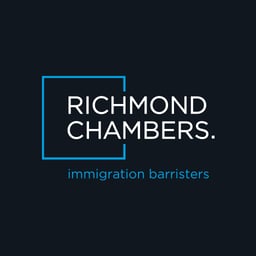News and developments
Property rental income and the partner visa financial requirement
Appendix FM of the Immigration Rules is family members of British nationals such as unmarried partners, fiance(e)’s, spouses or children coming to the UK. Most people in this category will need to meet a financial requirement as part of their application and the rules set out some specific ways in which those requirements can be met. In this article we will look at how someone with property rental income can meet the financial requirement.
What is the Financial Requirement?
A Fiance(e), Partner or Spouse will need to show that they have income of at least £18,600 in order to make their application. This is the same whether it is the initial application, an extension, or for Indefinite Leave to Remain. There are additional funds required for children. For someone who cannot meet the requirement on the basis of income, they can also rely on specified savings, and there are potential options for those who cannot do either. However, if you do not have enough funds in income or savings, then you may be required to show that there are exceptional circumstances in your application and could be put on a ten year route to settlement, rather than the standard five year route.
For property rental income, the Home Office will be looking at the actual income that you have received from property rental in the 12 months before the date that you make the application. The amount that you can rely on is the total income from property rental, and you do not need to deduct any amount being paid for the property, for example in maintenance, management or a mortgage. This means that even where your rental income is less than your mortgage outgoings, you can still technically meet the requirements of the Immigration Rules.
If you own the property jointly with another person, other than your Sponsor, you can only rely on the income from your share of the property.
What Evidence is needed to rely on property rental income?
To meet the requirements of the Immigration Rules, you will need to show that you own the property relied on. It can be owned by the Applicant or their partner. You can show this through either title deeds, a confirmation from the Land Registry or a mortgage statement.
To show the amount received, you should supply bank statements for or from the 12 month period prior to the date of application showing that they money has been paid into a personal account in the name of the applicant or their partner. This should be a personal account, rather than a business account, so if you rent your properties through a business and your rent is paid into a business account, you may need to use one of the other sources of income to meet the requirements.
You should also provide a rental agreement or contract to show that the property is rented out and the amount that you should receive for each month.
Restrictions on using property rental income
You can rely on property income from abroad or from within the UK. The only restrictions are that you cannot normally rely on property rental income from a property that is your home or will be the property that you will live in when you arrive in the UK. This means that lodger arrangements will not count towards meeting the financial requirement.
The property does not have to be rented out for the full 12 months. If the rental is a holiday let that is only rented for part of the year, this is fine. It also does not need to be rented out at the time that the application is made, providing you have sufficient income within the last 12 months to meet the requirements.
Combining with other sources of income
It is possible to combine property rental income with other listed source under Appendix FM.
For example, if have some savings and some property rental income, the amount of rental income you have will reduce the amount of savings you need to show. A rental income of £10,000 is not enough on its own to meet the financial requirement, but it would reduce the cash savings required from £62,500 (assuming no children) to £37,500 for an initial application or extension.
It could also be combined with employment income, or income from self-employment or form a specified limited company. However, anyone wishing to combine self-employment or income from a limited company will need to show the rental income from the same period as from the other source. For example, if you are self-employed you will be relying on the 12 month period from the most recent tax year ending on 5 April. Your rental income will also need to be from this same period.
There are also special provisions for someone who is returning to the UK with their partner. In order to rely on employment income for a British or Settled person who has been working overseas and plans to return to the UK with their partner, they must have earned £18,600 in the last 12 months (part 1), and have a job offer in the UK of at least £18,600 (part 2). When calculating the income they have earned in the last 12 months (part 1), it is possible to include property rental income, from a property which will become their main home when they return to the UK (which is not normally permitted). However, the income from the property cannot be counted towards the value of the income to be earned when they return to the UK (part 2).
Contact our Immigration Lawyers
For expert advice and assistance regarding an application or appeal for leave under Appendix FM, contact our immigration barristers & immigration lawyers in London on 0203 617 9173.
